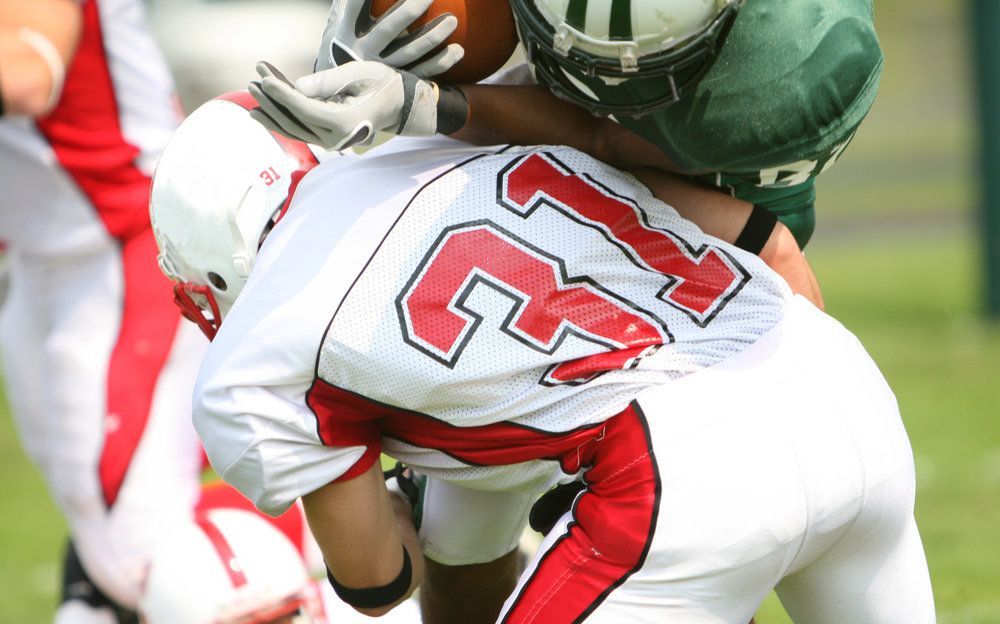Brain Injuries During Football
 Football is popular for spectators and players alike. As entertaining as football may be, it is a full-contact sport that can cause serious injuries. In recent years, doctors have begun to fully understand the potential long-term effects of brain injuries sustained during football.
Football is popular for spectators and players alike. As entertaining as football may be, it is a full-contact sport that can cause serious injuries. In recent years, doctors have begun to fully understand the potential long-term effects of brain injuries sustained during football.
Whether a football player has suffered a single injury or is dealing with the consequences of repeated injuries over an extended period of time, the effects can be catastrophic. Brain injury lawyers Sean M. Burke and Jason N. Argos have helped numerous brain injury victims in the Irvine, CA, area hold liable parties accountable for sports injury damages.
How Common Are Traumatic Brain Injuries in Sports?
The American Association of Neurological Surgeons (AANS) reports that an estimated 1.7 to 3.8 million Americans suffer from traumatic brain injuries each year. Of these, around 10 percent are linked to sports and other recreational activities. However, the rate of sports-related brain injuries is higher among children. Approximately 21 percent of all traumatic brain injuries in children and adolescents are caused by sports or recreational activities.
Traumatic Brain Injury (TBI) Symptoms
The potential symptoms of a traumatic brain injury are varied. While some symptoms may be immediately apparent, others may not develop for days or weeks. The duration of brain injury symptoms can also differ, and is largely dependent on the severity of the injuries and the part of the brain that sustained damage.
Following a football head injury, individuals may experience any of the following symptoms:
- Recurring headaches
- Dizziness or balance issues
- Nausea
- Slurred speech
- Difficulty processing or communicating thoughts
- General confusion or disorientation
- Shortened attention span
- Changes in mood
It is important that individuals who suffer a head injury during football seek medical attention right away. Some of these symptoms may be missed, or may not develop until injuries have progressed or worsened.
Football and CTE
Any of the above symptoms of a traumatic brain injury can turn into long-term or lifelong complications. However, the biggest long-term risk facing football players is chronic traumatic encephalopathy, or CTE. CTE is a degenerative disease that primarily affects football players who have sustained multiple head injuries over a period of time. Symptoms of CTE may develop over several years and can include:
- Learning disabilities
- Memory problems
- Mental illness (including depression and suicidal thoughts)
CTE is highly prevalent among football players. A study conducted by Boston University in 2017 found that of 202 brains that were examined from deceased football players, 177 of them had signs of CTE. That is 87 percent of the brains examined.
Brain Injury Damages
The physical and emotional effects of a traumatic brain injury are one aspect of damages that our Irvine clients may suffer. In addition, traumatic brain injuries usually result in costly financial losses.
Financial losses as a result of brain injury may include:
- Medical expenses (past and future)
- Cost of therapy and/or rehabilitation (past and future)
- Lost income
- Loss of wage earning potential
Why You Need a Brain Injury Lawyer
If another person or party is responsible for a brain injury, whether as a result of recklessness or neglect, they should be held liable for both the economic and non-economic damages of the injury. An experienced brain injury attorney from Burke Argos can help injury victims pursue the compensation they are due.
Get In Touch with Our Law Firm
If you or a loved one has suffered from a traumatic brain injury, the attorneys of Burke Argos can look into the details of the injury to determine whether financial damages may be due. To schedule a legal consultation, contact us online at your earliest convenience, or call our Irvine law firm at (949) 644-3434.
